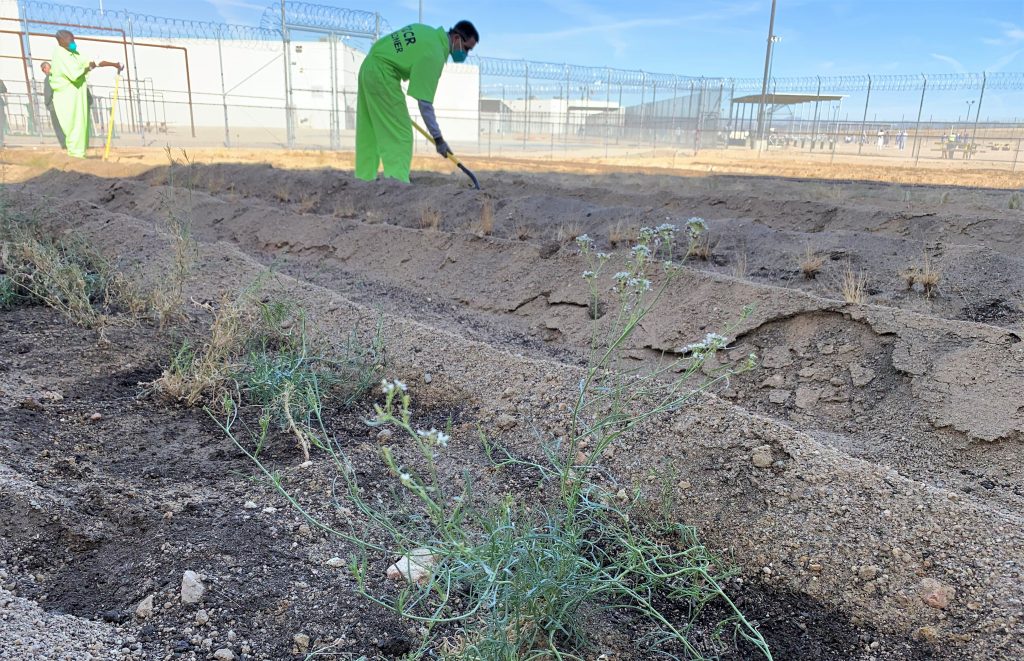Horticulture benefits volunteers, environment
Editor’s note: The Mojave Desert Seed Rehabilitative Training Program is in its second year at California City Correctional Facility. The program seeks to restore the desert habitat of an endangered tortoise.



Kevin Dyer’s prison expectations didn’t involve an effort to restore desert habitat. The incarcerated crew leader in the Mojave Desert Seed Rehabilitative Training Program said the project also changes lives.
“I could hardly believe it,” Dyer said. “They wanted hard-core prison inmates to help save a threatened species of tortoise by providing loving care to some plants.”
Dyer acknowledges his poor choices and lapses in judgment landed him in prison. While those experiences led to his present circumstance, it was his past that drove him to volunteer for the seed program.
“(With only) the agricultural experience that comes from mowing the lawn and watering my mother’s rose bushes, I still signed up,” he said.
Raised in city, participant finds comfort in caring for plants
At first, he questioned his choice but after a year in the program, he’s proud of what they are accomplishing.
“It’s not merely gardening. This has become the science of horticulture, soil components, seed germination, plant propagation and much more,” Dyer said.
He touts his newfound gardening-tool skills, appreciation for the outdoors and love of plants.
“As a city person, I can now proudly say I have shovel, rake and wheelbarrow skills,” he said. “These experiences stand in stark contrast to living in concrete cells with artificial lighting. I’ve also become attached to my plants, like an owner to his pets or a parent to a child. I believe they call it caring, which isn’t very ‘gangsta’ and very uncommon in prison.”
He’s also learning to care about the endangered tortoise’s fate. The awareness has also opened his eyes to issues such as climate change and cancer. Dyer has also learned the value of teamwork.
“I have an increased ability to work with anyone, from anywhere, of any background, wearing any uniform, to accomplish the goals of this program,” he said. “These are not the social skills normally acquired in prison.”
Dyer appreciates the opportunity to help others and the chance to embark on his own journey of self discovery.
“I suspect this program is of just as much benefit to me as it is to the threatened desert tortoise. To that, on behalf of my teammates, I say thank you to the Institute for Applied Ecology, Sustainability in Prisons Program and the prison staff.”
Effort to restore desert habitat
The Mojave Desert Seed Rehabilitative Training Program is an ecological education and horticultural program for incarcerated adults at the California City Correctional Facility (CAC). It is a partnership of the Institute for Applied Ecology, Bureau of Land Management, and CDCR. It is a part of the Sustainability in Prisons Project.
Read more rehabilitation stories.
Follow CDCR on YouTube, Facebook, X (formerly Twitter). Listen to the CDCR Unlocked podcast.